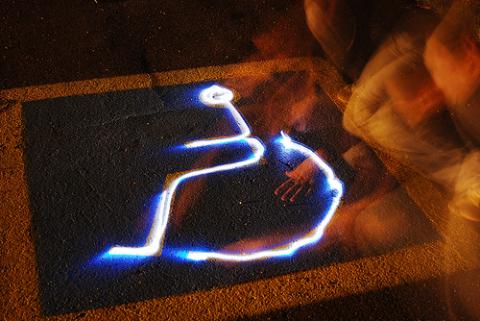Giddiness and waywardness

Coming from a traditional Traveller family, my electric wheelchair symbolises not just independence by way of mobility but, as a Traveller Beoir, the chair gave me choices, opportunities and autonomy.
Late one night, in the trailer where we lived when I was 18, in St. Margaret’s campsite, Ballymun, while in bed, our Mary nudged me in the ribs to listen to mam pleading with dad. “Brian, if she was one of your sons, you’d want her to have her freedom.” His response: “It’s dangerous. She’ll be taken advantage of or worse still, she might take advantage of someone else.” Both my parents were desperately trying to deal with the emotional side of me moving from childhood to adulthood, but also trying to encompass the question of my so-called vulnerability because of my cerebral palsy. My mother, in her wisdom, said, “Without the chair, she won’t be like her sisters. She’ll have no life. We won’t always be around. The giddiness and her foolish ways might go if she has the chair. It could be the makings of her.”
The chair came but it was too late. Being in special school, I had already fallen in with a wayward crowd. Writers, activists, philosophers, agitators, generally people who had too much to say for themselves. People who were angry. People who were oppressed and disadvantaged. People who dreamt of change. Between the ages of 18 and 25, most of us lived in sheltered or residential accommodation. In those days, disability allowance went to the service provider, and every Thursday in a public and humiliating way, we all lined up to receive our brown envelope of £5. This practice was more humiliating and degrading than fundraising (but that’s another story).
25 years on the wayward crowd I fell in with are now allegedly well-rounded, fully adjusted, functional adults .We vote, we participate; and it was my group of peers who made independent living a reality for Irish disabled people when we camped outside the Dáil in July 1995.This wayward crowd, many a night and early morning, we helped each other home. Nursed each others’ hangovers; supported each others’ quest to get to a gig or a film. At one stage, we used to borrow each others’ wheelchairs, just to get out. During this time, the phrase “capacity” was used in regard to each and every one of us.
“Capacity”, or the question of it, still gets used about me and some of my pals. Judgements are so subjective and institutional discriminatory thinking and practice seems to be part and parcel of the Irish psyche in relation to disabled people.
As the years rolled on, some of us travelled while the rest of us opted for partnerships and families. The waywardness of our youth exposed us to experiences similar to those of our non-disabled peers. Alcohol, drugs, sex, religion, rejection, alienation – and the positives, political consciousness, personal triumphs, social solidarity, friendships, loyalty, respect, dignity, humour, generosity. The fundamentals of what it is to be human. If we’d been sheltered or denied those experiences none of us would be the men and women we are today.
Michael Noonan’s explanation of the withdrawal of €88 from 18-21 year olds is a symptom much bigger than money in disabled people’s pockets. The reversal or the backtracking has created inches of talk and auld blather. Who manoeuvred who? For me the interesting question is Noonan’s use of the phrase “wayward children” – for it brings home the reality of many disabled people who are deemed as “difficult”, “hard to manage”, “easily influenced” or dare I say it, “wayward”. This infantilisation is demonstrated not only with families and carers but also it extends itself to service providers who want to contain and control us. “The wayward or the difficult ones need to be managed in a more stringent way.”
I’m all for waywardness. Proactive disabled people, regardless of their prescribed condition, have a right, and more importantly, a duty to be wayward, as part of maturing. Is a small spell of waywardness in someone’s life not a rite of passage? Making mistakes, taking risks; the old mantra of “With rights comes responsibility” is meaningless without living a little close to the edge. Egalitarian notions and mantras of empowerment, rights, choices, access, and self determination, remain aspirational for disabled people in this country. If the government wants to treat us like “everyone else”, then we must be allowed be brave, be boisterous, and be bold.{jathumbnailoff}
Image top: seanmcgrath.
